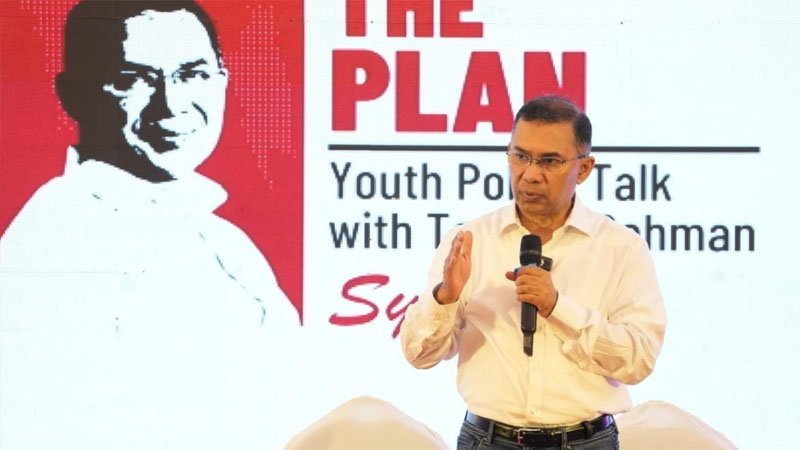36pc of Unemployed Seeking Jobs Through Relatives in Bangladesh

What It Reveals About Bangladesh’s Job Market
A recent survey conducted by the Bangladesh Bureau of Statistics (BBS) has revealed a striking pattern in the country’s employment landscape. According to the Labour Force Survey 2024, 36 percent of the unemployed in Bangladesh are seeking jobs through relatives and friends, making personal connections the most common job search method. The data, highlighted in a report by Prothom Alo, paints a vivid picture of how social ties continue to dominate access to employment opportunities, while formal channels remain underutilized. With unemployment estimated at 2.6 million across the country, this finding raises important questions about transparency, equity, and long-term solutions for the job market.
Reliance on Personal Networks
The BBS survey revealed that more than one-third of job seekers turn primarily to relatives and friends when looking for employment. This reliance on personal networks far outpaces other methods, making it the dominant approach. Beyond that, 26 percent of the unemployed reported using newspaper advertisements, while 12 percent tried approaching organizations directly to inquire about vacancies. Only nine percent formally applied to institutions, while 5.5 percent said they waited for job notices before applying. A smaller group—about 3.5 percent—reported taking part in direct interviews as their main method of securing work.
Other, less common approaches included distributing résumés among professional contacts, registering with both government and private employment centers, and in some cases, waiting on streets for casual or daily work. These varied strategies highlight not only the diversity of job search efforts but also the persistent dominance of informal methods over structured systems.
The survey also broke down unemployment by divisions, with Dhaka reporting the highest share at 687,000 unemployed people, followed by Chattogram and Rajshahi. This distribution reflects the dual challenge of urban saturation and rural underdevelopment, both of which fuel dependency on informal connections.
Why So Much Reliance on Relatives and Friends?
The dominance of seeking jobs through relatives in Bangladesh can be explained by several social and structural factors. Many unemployed individuals trust family and friends to provide more reliable access to opportunities. In a competitive job market, candidates believe that personal recommendations or insider knowledge may help them bypass red tape and get closer to an interview or hiring decision.
Another major reason is the perceived ineffectiveness of formal channels. While online job portals and newspaper advertisements exist, they are often viewed as inaccessible or unreliable. For many, especially in rural areas, there is limited exposure to such platforms, making informal word-of-mouth recommendations a more practical option.
Cultural norms also play a role. In Bangladeshi society, personal networks and referrals are highly valued, and securing employment through a trusted connection is often considered more acceptable than going through impersonal recruitment systems. At the same time, many people simply lack information about available vacancies, which makes seeking jobs through relatives the default method.
Implications for Bangladesh’s Employment Landscape
The fact that such a large proportion of job seekers depend on relatives and friends carries wide-ranging implications for the country’s job market. One of the most significant concerns is inequality. Job opportunities shared within family or social networks are naturally limited to those who already have strong connections. This puts marginalized individuals—such as rural youth, women, or first-generation graduates—at a disadvantage compared to those from more privileged backgrounds.
Another issue is the impact on transparency and meritocracy. When hiring decisions are made primarily through referrals, formal competition is weakened, and qualified candidates without strong connections may never get the chance to apply. This creates an uneven playing field, where social privilege often outweighs skills and qualifications.
Furthermore, heavy reliance on informal referrals contributes to underemployment. Many who secure jobs through family or friends end up working in roles that are irregular, part-time, or poorly paid. This explains why, despite millions being technically “employed,” nearly 10 million are considered underemployed or “disguised unemployed.” Such outcomes point to a structural weakness in how the labor market functions.
Finally, this reliance creates challenges for policymakers. If job seekers continue to prioritize informal methods, then public initiatives such as job fairs, employment portals, or vocational training programs risk being underutilized. This disconnect between state efforts and public behavior undermines attempts to build a transparent and merit-based labor system.
Lessons and Recommendations
To reduce dependency on seeking jobs through relatives, Bangladesh needs to strengthen and expand formal employment mechanisms. First, job portals and recruitment websites must be made more transparent, accessible, and user-friendly. Expanding digital literacy and ensuring internet access in rural areas could significantly improve their usage rates.
Public sector hiring must also set a stronger example by embracing merit-based recruitment. Competitive exams, transparent application processes, and wide publicity of vacancies can encourage more people to pursue formal opportunities. If citizens believe that government jobs are genuinely open and fair, the reliance on informal networks could decline.
Education and awareness campaigns are also critical. Job counseling services, both online and in educational institutions, can guide young people in preparing résumés, practicing interview skills, and applying through official channels.
At the same time, vocational and skills training programs must be better aligned with industry needs. Linking training with placement services would make formal hiring more attractive to job seekers. Recruitment agencies, which often charge high fees, also need stricter regulation to ensure that vulnerable job seekers are not exploited.
Finally, targeted interventions are necessary to help marginalized groups who lack strong social networks. Special recruitment drives, financial incentives for employers, and gender-sensitive policies can make the labor market more inclusive.
The Bigger Picture: Structural Challenges
While the statistic that 36 percent of job seekers are relying on relatives and friends is striking, it reflects broader structural challenges. Unemployment remains a serious issue, with millions of young people entering the labor market every year without enough corresponding jobs. Regional disparities make the problem worse, as rural areas offer fewer opportunities while urban centers like Dhaka are oversaturated.
Underemployment, meanwhile, is a persistent concern. Many individuals technically counted as employed are stuck in low-quality jobs that fail to match their skills or provide financial stability. On top of this, Bangladesh’s labor market is dominated by the informal sector, where most jobs are secured through connections rather than open applications.
The mismatch between skills and opportunities also feeds into this cycle. Many young people are graduating with degrees that do not align with market demands, forcing them to rely on seeking jobs through relatives as a fallback option. Without a coordinated strategy to bridge these gaps, the problem will continue.
The revelation that more than one-third of unemployed Bangladeshis are seeking jobs through relatives highlights both cultural norms and systemic weaknesses in the country’s labor market. While social networks can offer valuable support, overdependence on them risks perpetuating inequality, favoritism, and underemployment.
Bangladesh must take steps to strengthen formal job channels, promote merit-based hiring, and ensure that employment opportunities are accessible to all—regardless of background or connections. Only then can the country build a labor market where skills and qualifications matter more than who you know.






